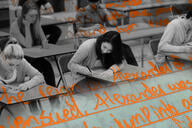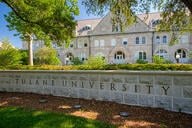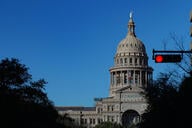You have /5 articles left.
Sign up for a free account or log in.
Is a professor sending out a late recommendation letter for a student as bad as one who commits academic misconduct or, say, sexually harasses a colleague? And shouldn’t staff and administrators be held to the same ethical standards as faculty members? Professors at Yale University are asking those questions, among others, and generally scratching their heads at what they say is a “curious” and “confusing” proposed faculty conduct code threatening undefined sanctions for a mishmash of transgressions.
Faculty members who are critical of the document also say it seems like it’s being ramrodded through an appointed committee just weeks ahead of the formation of the Faculty of Arts and Sciences’ first-ever Faculty Senate.
The university, meanwhile, says the document is an attempt to centralize its various policies regarding faculty conduct.
“This document is one of the strangest disciplinary procedures I have ever seen,” said Glenda Gilmore, the Peter V. & C. Vann Woodward Professor of History. “I have seen documents from peer institutions that provide much more detail about faculty discipline codes, and documents that are about shared commitment to ethical standards. But this appears to be the administration’s attempt to draw lines without telling what will happen to us when we cross them.”
Christopher L. Miller, the Frederick Clifford Ford Professor of African American Studies and French, said he believed opposition to the document was widespread among faculty members and shared via e-mail the feedback he recently submitted to Yale. Many of his comments echo Gilmore’s, and those of other concerned professors.
“I wonder why these new, far more specific and potentially dangerous guidelines are deemed necessary now?” Miller wrote. “What has changed at Yale to make these rules -- and unspecified sanctions -- necessary? Why are sanctions threatened but not specified? If this is a penal code, it should spell out the sanctions.”
“It appears,” he said, that the committee that drafted the document “gave little if any thought to the importance of safeguards: for academic freedom, for freedom of expression, for dissent and for diversity. Lip service to ‘free expression and inquiry’ in the preamble is not enough.”
In May, Yale’s president, Peter Salovey, and its provost, Ben Polak, formed a committee to draft the Faculty Standards of Conduct. The committee has a majority of faculty members, all of whom were appointed by deans and other administrators. There was just one professor from the humanities, a philosopher -- something that Gilmore and other faculty members said they thought was strange.
In a letter last month asking for feedback from other faculty members on the draft, Salovey and Polak explained the standards like this: “Faculty, like all members of the Yale community, are responsible for adhering to the highest ethical and professional standards. Whereas many of these standards are stated explicitly in the Faculty Handbook and other records of university policy, others are not articulated in any Yale document. As a result, the university’s published statements do not fully reflect our shared commitment to the highest ethical standards.”
The letter says that the committee reviewed existing Yale policies regarding ethics and conduct and similar documents from peer institutions, “carefully considered examples (with names and identifying information removed) of behavior by faculty that one might consider troubling[.]” The resulting draft, Salovey and Polak say, describes “the ethical principles that should be the foundation for faculty members’ engagement in their teaching, research and university service, and provides specific examples of behaviors that would constitute violations of those principles.”
The preamble to the standards echoes that idea, saying, in part, that the “ethical principles shared by members of the Yale faculty derive from many sources, both internal and external,” and are expressed in various existing faculty policies. The draft, which is not publicly available but which was obtained by Inside Higher Ed, says it seeks to summarize those principles and “provide examples of conduct that falls short of the professional behavior they require.” It continues: “The examples of conduct listed here are not exhaustive, and if a faculty member’s behavior violates the faculty’s shared principles, he or she may be subject to sanction whether or not the behavior is specifically described below.”
Examples of sanctionable behaviors include “arbitrary and capricious denial” of access to instruction or academic resources, failure to contribute to the “teaching mission” of the university “reasonably required” by a faculty member’s program and the failure to meet “reasonable deadlines” in evaluating a trainee’s work or providing career support, such as letters of recommendation. The document does not specify what kinds of sanctions might be meted out.
Miller said that while some of the prohibited behaviors -- discrimination, harassment and exploitation of students -- are “unexceptionable,” others are troublingly vague. For example, he said, a prohibition against participating “in behavior that is intended to prevent the orderly conduct of teaching or training” stands out for its potential for “repressing dissent.”
“The problems here begin with the word ‘intended,’” he wrote in his commentary. “Who is to judge intent, and based on what?”
Perhaps more importantly, Miller continued, “What kind of conduct might be construed as ‘preventing’ the ‘orderly’ conduct of teaching or training? That too is excessively -- and dangerously -- vague. If a faculty member were, for example, to call for a moratorium on classes, in response to, say, a threat of war -- something that took place in the memory of many of us -- he or she would, in fact, be seeking precisely to interrupt the regular, ‘orderly’ conduct of courses. That would be the point of it. Would such a faculty member be ‘subject to sanction’ -- whatever that threat implies?”
Miller also asked how the code would apply to faculty members holding classes off campus to show solidarity with unionized campus workers, as many did in 1984, when the clerical and technical workers’ union went on strike.
Yale says no particular event prompted the move, but faculty members point to two recent events they believe may have influenced it. In April, Yale initiated an independent management review of Michael Simons, who was then the director of its Cardiovascular Research Center, based on years-old allegations that he harassed a postdoctoral researcher. He was removed from his post in November as a result of that investigation, amid faculty outcry that an earlier sanction -- which was less than what a faculty committee had recommended -- wasn’t enough.
There’s also lingering friction at Yale over the administration’s 2011 decision to jointly build a new university in Singapore. Faculty members have expressed concern about their level of input in the move and whether Yale’s commitment to academic freedom can be upheld in Singapore, where free speech is limited and homosexuality is criminalized.
“The recent debate on Yale’s venture in Singapore made it plain just how unwelcome dissent can be at an institution that has made up its mind to do something -- and with what disrespect dissidents can be treated,” Miller said.
The Singapore debate in part prompted Yale’s arts and sciences faculty to push for its first-ever Faculty Senate. An initial recommendation for the senate was approved in 2013 and an advisory senate will be appointed this spring. It’s expected to start functioning in the fall.
Gilmore said the timing of faculty conduct code -- just before the formation of a body typically responsible for drafting such documents -- is “tone-deaf at best and, at worst, sinister.”
Michael Fischer, a professor of computer science, agreed. “A big question in my mind (and in other people's minds) is the apparent attempt to bypass the newly approved [Faculty Senate], which one would expect to be the body that would normally be consulted on an issue such as this,” he said via e-mail.
Fischer enumerated his “many” other concerns as follows: “[W]hat is in the document, what is not in, why it is being produced, why it applies only to faculty, why it exceeds the committee's charge ‘to consider the ethical principles that should be the foundation for faculty members' engagement in their teaching, research and university service,’ whether or not the administration plans to bring it before the faculty for discussion and a vote, and why the document fails to clearly distinguish between ethical principles, policy, standards of conduct and rules and regulations.”
Margaret Clark, the code committee chair and a professor of psychology, said she understood the “interest” in the topic, but said it would be inappropriate for her or any other member of the committee to comment on it while it is still being drafted.
Tom Conroy, a university spokesman, referred most questions about the draft to the administration’s January letter seeking feedback. It’s unclear what the university will do with the feedback it receives, but it plans to add the final version to the Faculty Handbook.
Gilmore said that to her, the draft document amounted to an attack on tenure.
“I feel that this changes a tenured faculty member’s terms of employment,” she said, “if the administration can add rules and regulations saying you can be sanctioned for these matters.”
Gilmore said she wouldn’t necessarily feel better about the document if it listed specific sanctions, but she said it would at least clear up questions about whether mailing a recommendation letter late, for example, would warrant the same disciplinary attention as some of the graver offenses.
The actual standards are divided into three sets: those regarding teaching and training, scholarship and professional conduct, and colleagues and the university. Each set has an underlying ethical principles and examples of conduct “inconsistent” with those principles.
The teaching and training section stresses the “integrity of the teacher-student relationship,” and says that professors should treat students with respect and evaluate them by their intellectual merits and work alone. Professors maintain “proper professional boundaries and never exploit the unequal institutional power inherent in the relationship” between them and their students and trainees, it adds.
In addition to aforementioned violations, the section prohibits discrimination against students for their politics and a variety of protected identities, and “deliberate use of the position of powers of a faculty member to coerce, exploit, intimidate or harm” a student. The policy does not change Yale’s existing policy regarding consensual professor-student relationships, which prohibits dating and sex between faculty members and undergraduates but permits them with graduate students when there is no past, present or strong potential for a future advisory relationship. That's perhaps notable, given the Internet outing campaign accusing a prominent professor of philosophy at Yale of sexual harassment last year, which had many in the discipline talking.
Scholarship and professional standards’ underlying principles say that “members of the Yale faculty conduct and publish their research and writing with scrupulous honesty, and they do not allow pecuniary or other improper influences to compromise the integrity of their scholarship.” Inconsistent conduct includes: academic misconduct, deliberate misuse of research funds and failure to disclose required details about research support and other financial interests that could influence research outcomes.
Principles regarding colleagues and the university say that by “freely associating themselves with the university, members of the faculty affirm their commitment to a philosophy of mutual tolerance and respect,” and that faculty members have “the right and obligation to criticize their colleagues, staff members and the university, but they endeavor to do so without personal animus and without seeking to intimidate or coerce.” Incompatible conduct includes intellectual property theft; failure to protect confidential employment information, such as that relating to appointments and promotions; violation of Yale’s policy on sexual misconduct; discrimination or harassment of faculty or staff; failure to meet the “generally accepted responsibilities of an appointed faculty leadership position”; and conviction of a crime.
The language seems to hint at collegiality, or its newer incarnation, civility, which the American Association of University Professors opposes as a criterion for tenure or evaluation, for its ability to chill free inquiry.
Henry Reichman, professor emeritus of history at California State University at East Bay, and chair of the AAUP's Committee A on Academic Freedom and Tenure, said via e-mail that "Certainly tolerance and respect are to be encouraged, but must signing a contract with Yale commit a faculty member to such a broad 'philosophy'? This is similar to calls for 'civility,' a quality that no doubt is desirable and worthy of encouragement, but one that should not and cannot be mandated."
Reichman said it was his personal opinion that the Yale document as a whole is "overly broad and vague, as well as largely unnecessary." He said many of the examples of negative behaviors are "legitimate" concerns, but, because they're offered as illustrations of "much broader and imprecisely worded" principles, they don't mean much in the way of guidance and are too open to interpretation. That's underscored by the lack of reference to academic freedom, shared governance or due process for those accused of violating the principles, he added.
"Take, for example, the statement that faculty 'maintain proper professional boundaries,'" Reichman said. "What/who defines these boundaries? Or take the statement that faculty 'conduct and publish their research and writing with scrupulous honesty, and they do not allow pecuniary or other improper influences to compromise the integrity of their scholarship.' If a faculty member's research is questioned by other scholars, might it then be deemed not to be 'scrupulously honest'? And if a faculty member earns money from research but agrees to publish it in more popular form or sells research results to, say, a pharmaceutical company, might this 'compromise the integrity' of the scholarship?"
Critics of the draft say faculty members have been studying peer institutions’ statements on ethics, and that many appeared to apply to the university as a whole -- not just faculty members. Gilmore pointed to Harvard University’s policy, which says, in part, that the “central functions of an academic community are learning, teaching, research and scholarship. By accepting membership in the university, an individual joins a community ideally characterized by free expression, free inquiry, intellectual honesty, respect for the dignity of others and openness to constructive change. The rights and responsibilities exercised within the community must be compatible with these qualities.”
Gilmore said she didn’t want to comment on whether the Harvard statement was better, but she said it was “astoundingly different” upon first read.
Reichman said there was no need for Yale faculty members or administrators to "reinvent the wheel here," pointing to existing AAUP statements, some published jointly with other, nonfaculty higher education groups, on academic freedom and tenure, professional ethics and the rights and freedoms of students. He said Yale might also try to bring its governance policies into line with the AAUP's statement, released jointly with the Association of Governing Boards of Universities and Colleges and the American Council on Education, on government of colleges and universities, "including the principle that 'faculty representatives should be selected by the faculty according to procedures determined by the faculty,' which does not seem to be what happened here."





